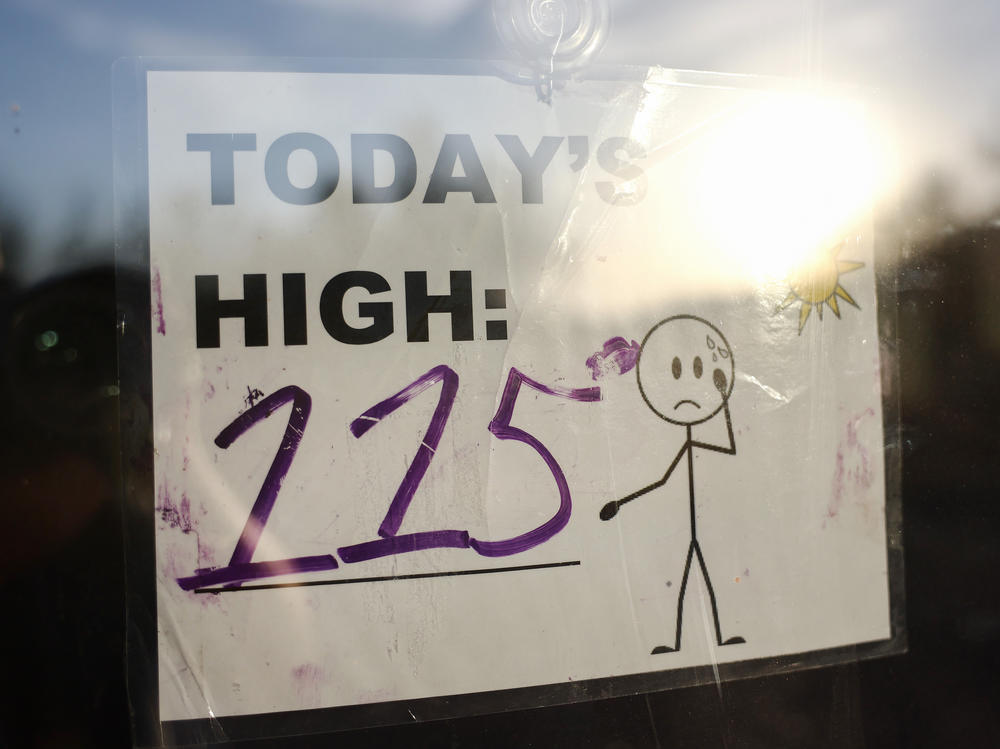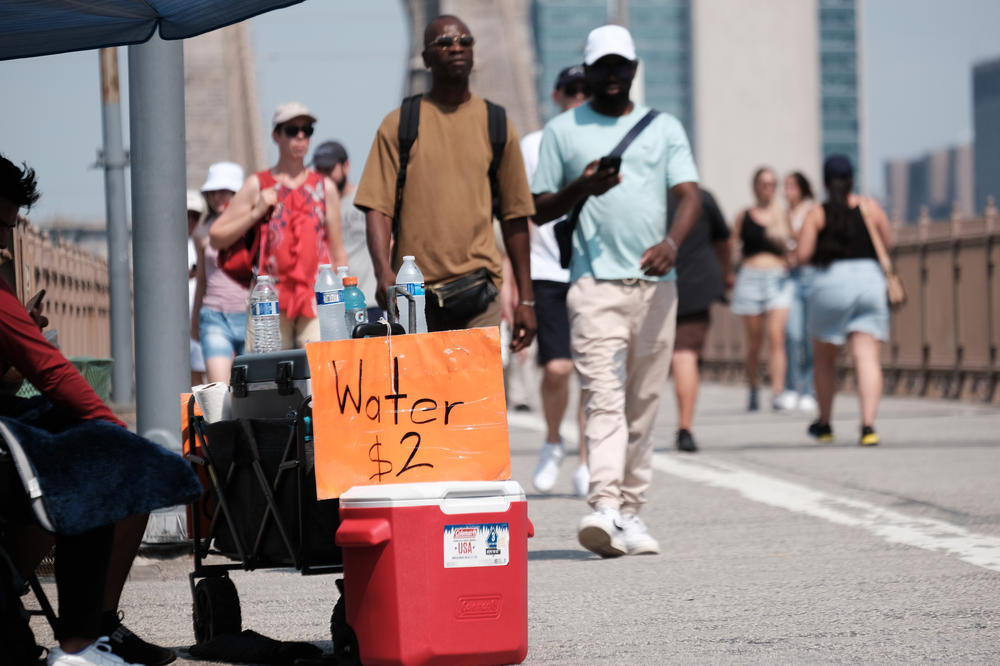Section Branding
Header Content
She is trying to get the U.S. to take extreme heat more seriously. Here's how
Primary Content
This story is part of NPR's Main Character of the Day series, where we spotlight the people and things worth talking about — and the stories behind them.
If you were to fly over any city in the world that's blazing under triple-digit temperatures right now, you wouldn't see anything that would look like a disaster.
Yet, extreme heat killed more people in the U.S. last year than hurricanes, floods, lightning or tornadoes, according to the National Weather Service. Kathy Baughman McLeod says it doesn't have to be this way.
Who is she? Baughman McLeod is the senior vice president and director of the Adrienne Arsht-Rockefeller Foundation Resilience Center, a nonprofit focused on climate adaptation, at the Atlantic Council. She also serves on FEMA's National Advisory Council.
- Her title is a mouthful, but her goal is simple: She wants the U.S. — and the world — to take extreme heat more seriously.
- "If you think about it, heat has no owner. There is no heat agency. It's everybody and nobody's problem, and I think that needs to change," she told NPR.
- Baughman McLeod and her team have been pushing cities to name "chief heat officers" to address heat that is worsened by climate change, and have welcomed appointments in cities like Miami, Monterrey, Dhaka and Melbourne.
- Baughman McLeod also wants heat waves to be categorized and officially named like hurricanes, to give them the same urgency and legitimacy as other extreme weather events, saying: "We think, and are showing, that a health-based categorization system is a great way to convey how deadly the risk is at any certain time in a given community."
What's the big deal? Heat is a known killer, yet the data gathered on heat-related illness and deaths is inconsistent and incomplete.
- Baughman McLeod says the country's infrastructure doesn't adequately support those victimized by heat, especially the most vulnerable populations, which are often Black and Brown people.
- "The increase of the risk and the impact is happening so quickly, our own perception of it can't keep up," Baughman McLeod said.
- She says part of the reason it's so difficult for governments to understand the true impact of heat is that there is no consistent record keeping of heat-related illnesses or deaths on hospital forms when a patient seeks help.
- Baughman McLeod says we need clearer data to create a sense of urgency that could save lives, pointing to the hundreds of deaths attributed to the 2021 heat wave over the Pacific Northwest that she calls a "mass casualty event."
- Human-caused climate change is also making heat waves longer, more frequent and more intense, meaning events like this summer's record-breaking heat in the U.S. and Europe are much more likely.
What are people saying?
- Phoenix has been experiencing temperatures above 110 degrees for a longer stretch of time than ever before — 27 days and counting, as of Thursday. That city's mayor, Kate Gallego, and chief heat officer, David Hondula, are both calling for more federal funding to support their efforts related to mitigating the impact of extreme heat.
- Currently, FEMA does not officially recognize heat waves as disasters. There has been increasing pressure from scientists and local leaders on the agency to do so.
Want to hear the full conversation with Baughman McLeod? Tap the play button at the top.
So, what now?
- If there was systematic counting and reporting of heat deaths and illnesses, Baughman McLeod says, "We'd have the private sector getting involved, understanding how much it was costing them, the health care companies, governments enacting lots of evidence-based interventions that we know work and save money."
- Recently, Baughman McLeod's nonprofit partnered with the city of Seville in Spain to officially name and categorize three heat waves, including "Zoe" in July of 2022. While a peer-reviewed study is yet to be conducted, Baughman McLeod says early results of the pilot program look promising. "People who remembered Zoe's name did act and do more, share with their friends and family and trusted the government's advice."
- Last year, The Biden Administration created heat.gov, a source of health information related to extreme heat and its impacts on the nation's health and economic wellbeing.
- On Thursday, President Joe Biden announced new actions aimed at protecting workers in industries like agriculture and construction from extreme heat.
- But Baughman McLeod says governments need to collect better data and employ targeted public awareness campaigns, among other solutions, to make the dangers of heat known. "No one has to die from this. With the right information and a place to go, nobody has to die."
Learn more:
- Biden rolled out some new measures to respond to extreme heat as temperatures soar
- Here's what happens to the body in extreme temperatures — and how heat becomes deadly
- Heat kills, but it doesn't have to: How the government can help
Copyright 2023 NPR. To see more, visit https://www.npr.org.


